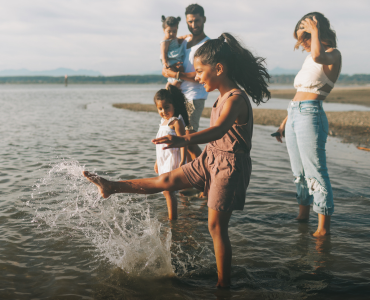
Spending time outdoors is a great way to relax and soak in some vitamin D. But too much sun exposure without proper protection can lead to sunburn. A sunburn is much more than just red skin. It is a sign that ultraviolet (UV) rays have damaged your skin. While it may seem like a minor problem, repeated sunburns can raise your risk of skin cancer and speed up skin aging.
This blog explains how to prevent sunburn, what to do if you get one, and tips for fast relief. With the right steps, you can protect your skin and keep it healthy.
What Is Sunburn?
Sunburn happens when the outer layers of your skin are damaged by UV rays. According to Yale Medicine, UV exposure triggers an inflammatory reaction. This reaction leads to red, hot, and tender skin. In more severe cases, sunburn may cause swelling, blisters, chills, or even fever. Skin may start peeling several days later.
The Mayo Clinic notes that symptoms usually appear a few hours after unprotected sun exposure and may take days to heal. Even skin covered by clothing can burn if the fabric is loosely woven. Eyes can also burn because they are sensitive to UV rays.
How to Prevent Sunburn
The best way to prevent sunburn is to limit UV exposure. Here are tips from the American Academy of Dermatology (AAD), Yale Medicine, and the Mayo Clinic:
- Wear sunscreen daily: Use broad-spectrum sunscreen with an SPF of 30 or higher. This practice is also important on cloudy days. Apply it 30 minutes before going outside. Make sure to reapply every two hours, or more often if swimming or sweating.
- Cover key areas: Do not forget to apply sunscreen to your ears, scalp, lips, feet, and other commonly missed spots. Look for lip balms and hair products that contain SPF.
- Seek shade: Avoid direct sun between 10 a.m. and 4 p.m., when UV rays are strongest. If shade is unavailable, wear protective clothing. This includes long sleeves, a wide-brimmed hat, and UV-blocking sunglasses. Dark-colored clothing can offer more UV protection than light-colored fabrics.
- Check the UV index: On high UV index days, limit your time outside and take extra precautions.
- Be cautious near reflective surfaces: UV rays reflect off water, snow, and sand. These surfaces can increase your risk of sunburn.
- Watch for sun-sensitive products: Some medications and skincare ingredients (like alpha-hydroxy acids) can make your skin more sensitive to sunlight. Ask your doctor about side effects.
- Avoid tanning: Tanning beds and sunbathing may offer a temporary glow. But they also raise your risk of burns, skin cancer, and premature aging.
What to Do If You Get Sunburned
Even with precautions, sunburns can happen. If your skin feels hot, sore, or turns red, try these steps:
- Get out of the sun: Move indoors or into shade right away to stop further damage.
- Cool the skin: Take a quick, cool shower or bath. You can also apply a cool, damp cloth to the area. Adding colloidal oatmeal to a bath may help calm inflamed skin.
- Moisturize: After cooling, apply an unscented moisturizer or calamine lotion. Products with aloe vera, 1% hydrocortisone, or soy can be helpful. They can relieve pain and inflammation. Reapply as needed, especially during the peeling phase.
- Hydrate: Sunburn draws fluids away from your body. So, drink more water to prevent dehydration.
- Take pain relief or anti-itch medication: Over-the-counter options like ibuprofen or acetaminophen can help with discomfort. An oral antihistamine may help reduce itching.
- Avoid harsh products: Stay away from petroleum-based ointments and alcohol-based lotions. They can trap heat or dry out your skin.
- Let blisters heal: Do not pop blisters. They have their own healing mechanism. If one breaks, trim loose skin with clean scissors, apply antibiotic ointment, and cover the area with a clean bandage.
When to See a Doctor
While most sunburns heal with home care, some may need medical attention. Contact a provider if you notice:
- Large areas of blistering
- Fever, chills, confusion, or dizziness
- Signs of infection (pus, red streaks)
- Eye pain or changes in vision
- Pain that does not improve
Yale Medicine states that children are especially vulnerable to sunburn. It is important to take precautions to prevent sunburn in children. Also, monitor their symptoms closely.
While melanin helps absorb UV rays, people of all skin tones can still get sunburned. That is why it is important for everyone to take precautions.
Visit Clinicas
At Clinicas del Camino Real, Inc., your skin health is important to us. We offer CAREPLUS Urgent Care for fast, non-emergency care. We also treat sunburn and other skin conditions. You can also access CAREPLUS Virtual Visits to get support from your devices at home.
Severe sunburn can be painful if left untreated. Whether you need quick care or tips for sun protection, our providers are here to help you heal and stay healthy. Schedule a visit or walk in today.

